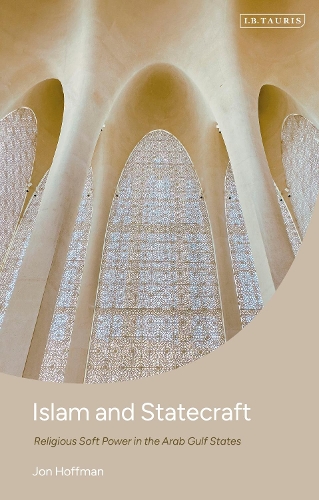
Islam and Statecraft: Religious Soft Power in the Arab Gulf States
(Paperback)
Available Formats
Publishing Details
Islam and Statecraft: Religious Soft Power in the Arab Gulf States
By (Author) Jon Hoffman
Bloomsbury Publishing PLC
I.B. Tauris
20th February 2025
United Kingdom
Classifications
Professional and Scholarly
Non Fiction
Diplomacy
Islam
327.53
Physical Properties
Paperback
288
Width 124mm, Height 204mm, Spine 6mm
367g
Description
Instead of religion influencing political outcomes, this analysis examines how politics influences religious outcomes. Dominant analyses examining the utilization of religion as a tool of statecraft in the Middle East remain overwhelmingly fixated on how Islam influences the foreign policies of different state actors not how political considerations often influence the forms Islam assumes and how religion itself is often molded according to strategic considerations of political elites. That Islam, due to its unique or exceptional relationship with politics, drives political outcomes at the international level in the Middle East is a myth this book shatters by demonstrating how the political considerations of ruling elites specifically, the intersection of domestic and foreign threats influence and constrain the kinds of religious soft power strategies adopted by states in the region. This book develops a comprehensive analytical framework for the notion of religious soft power capable of incorporating power-based, identity-based, and ideational variables to examine how states couple religion with their broader foreign policy conduct. This framework is applied to the Middle East through the specific examination of three countries - Saudi Arabia, Qatar, and the United Arab Emirates - in the period following the Arab Uprisings to demonstrate how specific religious narratives, identities, histories, and ideologies are constructed by political elites in the Middle East for the advancement of what are inherently political objectives, namely the imperatives of regime preservation and power projection.
Reviews
In this cutting-edge exploration, Hoffman flips the usual, causal explanations that often abound when exploring the relationship between religion and foreign policy in the Middle East. This work is rich in both empirical detail and conceptual insight, making it required reading for scholars exploring the relationship between foreign policy and religion. -- Edward Wastnidge, Senior Lecturer in Politics and International Studies, Open University
Author Bio
Jon Hoffman is a Foreign Policy Analyst at the Cato Institute, USA, specializing in U.S. foreign policy in the Middle East, Middle East geopolitics, and political Islam. He is also an adjunct professor at the Schar School of Policy and Government at George Mason University, USA. His work has been featured in a number of policy-oriented platforms, including Foreign Policy, The Washington Post, The National Interest, Middle East Policy, and more. Hoffman was included in the inaugural cohort of the 40 under 40 award provided by the Middle East Policy Council for furthering U.S. understanding of the Middle East.
